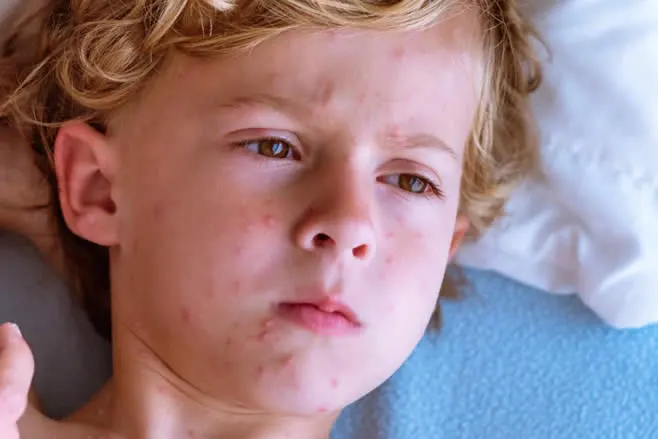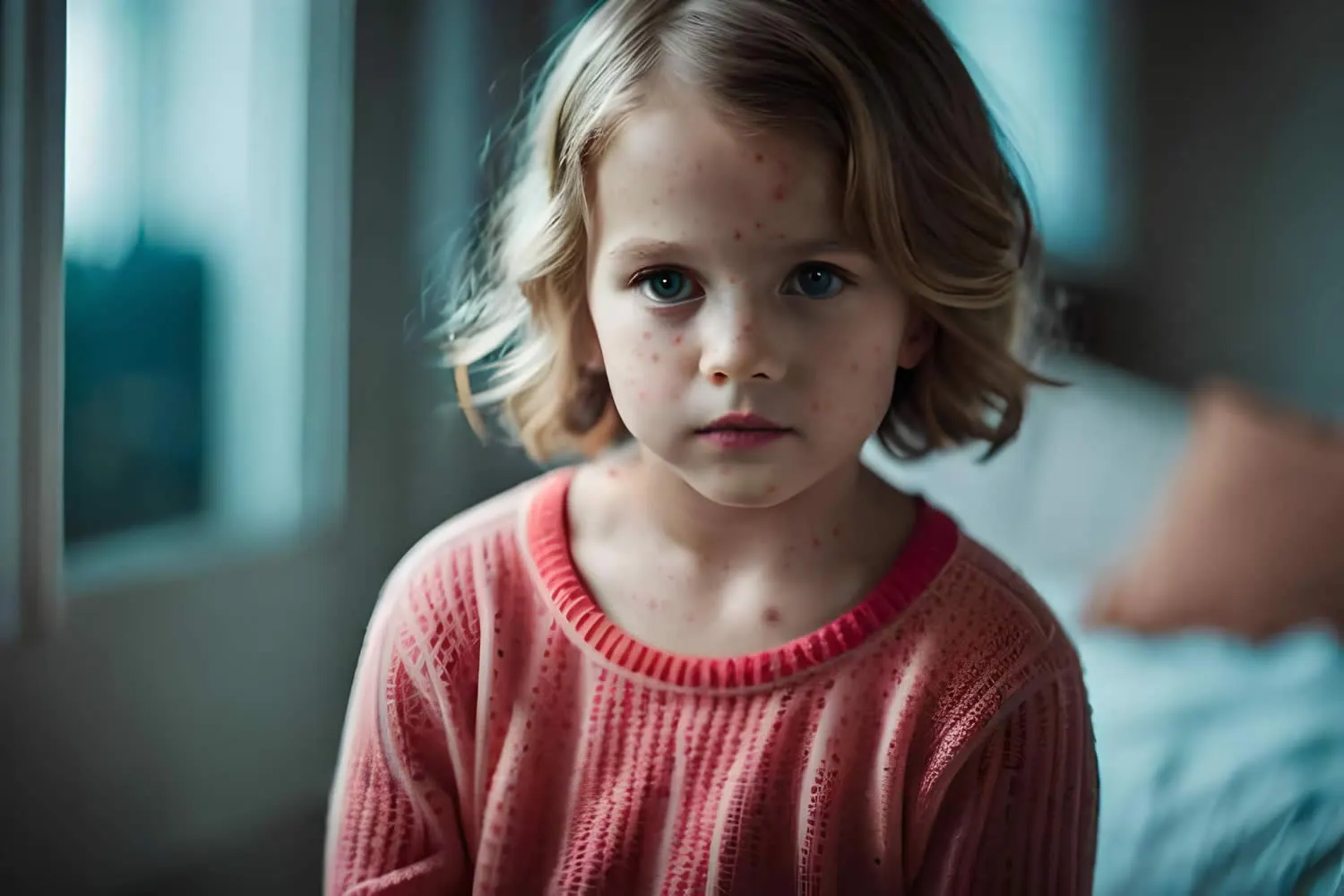What is Chickenpox?
Chickenpox is a highly contagious illness caused by the varicella-zoster virus. It is characterized by a rash of itchy, fluid-filled blisters that appear on the face, body, and scalp. Chickenpox is most commonly seen in children, but can occur in people of all ages.
The initial symptoms of chickenpox typically include fever, fatigue, and loss of appetite, followed by the rash. The virus spreads easily from person to person through the air or by direct contact with the fluid from the blisters. Most people who get chickenpox will recover fully within a few weeks, but some people can develop more serious complications, particularly if they have a weakened immune system.
A vaccine is available to prevent chickenpox, and is recommended for all children and for people who have not had chickenpox in the past and are not already immune. The vaccine is safe and effective, and can significantly reduce the risk of chickenpox and its complications.

What are the causes of Chickenpox?
Chickenpox is caused by the varicella-zoster virus, a highly contagious virus that spreads easily from person to person through the air or by direct contact with the fluid from the blisters. Once a person has had chickenpox, the virus remains dormant in the body and can reactivate later in life as shingles.
People who have not had chickenpox or been vaccinated against it can get the virus by being in close contact with an infected person, either through the air or by touching an open blister. The virus can also be spread from a pregnant woman to her fetus during pregnancy or to a newborn during delivery.
Chickenpox is most common in children, but can occur in people of all ages. People who have weakened immune systems, such as those with cancer, HIV, or other conditions that impair the immune system, are at higher risk for more severe and complicated cases of chickenpox.
What are the symptoms of Chickenpox?
The symptoms of chickenpox typically include:
- Rash: A rash that starts as small, red bumps that turn into fluid-filled blisters. The rash may be present on the face, scalp, chest, back, arms, and legs.
- Fever: A mild to moderate fever is often present during the early stages of the illness.
- Itching: The rash is usually itchy, which can be uncomfortable or even painful.
- Fatigue: Many people experience fatigue and a general feeling of malaise during a chickenpox infection.
- Headache: Some people may experience a headache during a chickenpox infection.
- Muscle aches: Some people may experience muscle aches or joint pain during a chickenpox infection.
- Loss of appetite: Some people may experience a loss of appetite during a chickenpox infection.
The symptoms of chickenpox can range from mild to severe, and can last anywhere from 7 to 10 days.
What treatments are available for Chickenpox?
Treatment for chickenpox focuses on relieving symptoms and preventing complications. The following measures can be helpful:
- Over-the-counter pain relievers: Over-the-counter pain relievers such as acetaminophen (Tylenol) can help reduce fever and relieve discomfort. Aspirin should not be given to children with chickenpox due to the risk of a serious condition called Reye’s syndrome.
- Cool baths: Cool baths with colloidal oatmeal or baking soda can soothe itchy skin.
- Calamine lotion: Calamine lotion can be applied to the skin to relieve itching.
- Antihistamines: Antihistamines, such as diphenhydramine (Benadryl), can relieve itching and help you sleep.
- Antiviral medications: Antiviral medications, such as acyclovir (Zovirax), can help reduce the severity and duration of chickenpox in people with weakened immune systems or those who develop severe symptoms.
- Immune globulin: Immune globulin, a preparation of antibodies, can be given to people who are at high risk of complications from chickenpox.
FAQ About Chickenpox
How long does it take for Chickenpox to go away?
Chickenpox usually lasts 5 to 10 days, but the rash can take several weeks to heal completely.
Can you get Chickenpox more than once?
In most cases, people who have had chickenpox do not get it again. However, in rare cases, the virus can reactivate later in life as shingles.
Can the Chickenpox vaccine prevent chickenpox?
Yes, the chickenpox vaccine is highly effective in preventing chickenpox and its complications.
What should I do if I think I have Chickenpox?
If you think you have chickenpox, it’s important to see a doctor as soon as possible, especially if you are pregnant, have a weakened immune system, or are otherwise at high risk for complications. Early treatment can help reduce the severity and duration of the illness.
How is Chickenpox spread?
Anyone can get chickenpox, but it is most common in children under the age of 15.
Is Chickenpox a serious condition?
While chickenpox is usually a mild illness, it can be serious for certain populations, such as newborns, pregnant women, and people with weakened immune systems.
Can Chickenpox cause complications?
Yes, chickenpox can cause complications such as pneumonia, encephalitis, and skin infections.
Is there a dermatologist near me in Porter Ranch that offers treatment for Chickenpox?
Yes. At our Porter Ranch dermatology office we offer treatment for Chickenpox to patients from Porter Ranch and the surrounding area. Contact our office today to schedule an appointment.


